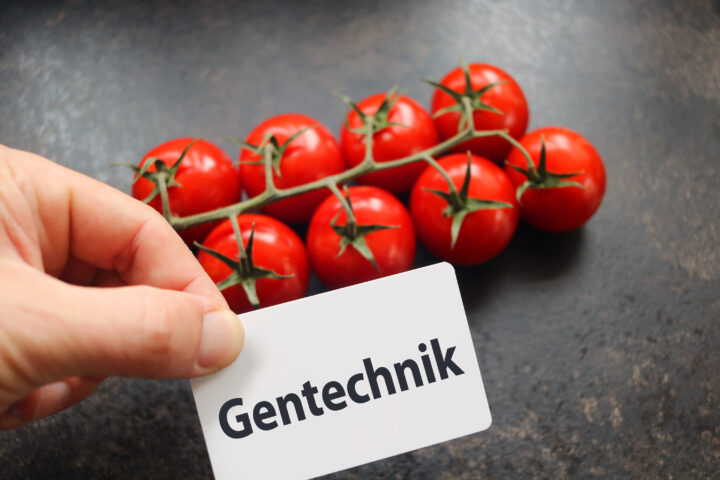
«An area one and a half times the size of the EU»
The world’s population will increase to roughly 10 billion by 2050. If agriculture is to keep pace with growth, enormous areas would have to be converted to use for food production. This puts additional pressure on the environment, biodiversity and the climate. Urs Niggli is therefore convinced that we need to make more productive use of existing land. This also means using gene editing.
Wednesday, October 27, 2021
In an interview with the newspaper “Tagesspiegel,” Urs Niggli, an agronomist and the former director of the Research Institute of Organic Agriculture (FiBL), spoke about the challenges ahead for global agriculture.
One major problem is the need for more land. As he points out, “Even if global agriculture continues to produce higher yields, by 2050 we would need roughly an additional 200 million hectares of cropland and 400 million hectares of grassland in order to feed the world’s population, which is expected to reach nearly 10 billion by that time.” This corresponds to an area one and a half times the size of the European Union. The impact on biodiversity and the climate would be enormous. Niggli therefore argues that unspoiled moors and rain forests should not be turned into agricultural land, but that existing land should be managed more productively instead.
Organic farming uses more land
A variety of approaches will be needed if this is to succeed. First, Niggli says, in most cases farmland should not be used for the cultivation of forage plants. We also need to reduce food waste as much as possible. It has to be said that However, this requires new technologies. Pests and plant diseases will continue to be a problem – and alien species will continue to spread, thanks to trade flows and climate change.
The breeding of resistant crops will play an important role in this context. “Wheat varieties that modern ‘gene scissors’ technology has made resistant to mildew, as well as fruit trees that have been genetically engineered to withstand apple scab, could reduce crop losses,” says Niggli. It is likely that gene editing will soon play an important role in conventional agriculture. Niggli points out that organic farming can continue to provide important new ideas.
It can’t feed the world
Organic farming is not capable of feeding the global population, for one simple reason: Its yields are 20 to 25 percent lower than those of conventional farming. When the soil is good, the discrepancy is even greater. If the goal is to save land, therefore, organic farming is not the right choice. Our conclusion is that truly sustainable, resource-efficient agriculture combines the expertise of the organic and conventional sectors and takes advantage, in a clear-eyed way, of all available, safe technologies.
Related articles

ARTE documentary: Genetic engineering in organic farming?
The ARTE documentary “Genetic engineering in organic farming?” examines key controversial questions of modern agriculture: Is the general exclusion of new breeding technologies still up to date? Can the resistance of organic farming be justified scientifically?

The Great Suffering of Farmers
Fire blight, Japanese beetles, or grapevine yellows – farmers in Valais, too, are increasingly feeling helpless in the face of the threats posed by nature. More and more often, they lack the means to effectively protect their crops. This makes it all the more important for the Federal Council to place a pragmatic balancing of interests at the forefront when setting threshold values.

Tomatoes in Front of Their Eyes
The submitted “Food Protection Initiative” calls for “GMO-free food.” Leaving aside this illusory demand, its adoption would mean more bureaucracy, more trade barriers, and less innovation. The Swiss Farmers’ Union describes the proposal as “unnecessary” and warns of a setback to the goal of achieving an even more sustainable agriculture.

How our daily lives end up in the water
When residues in our waters are discussed, agriculture is often portrayed as the main culprit. Yet a closer look shows that the sources are diverse and often much closer to everyday life than assumed.

